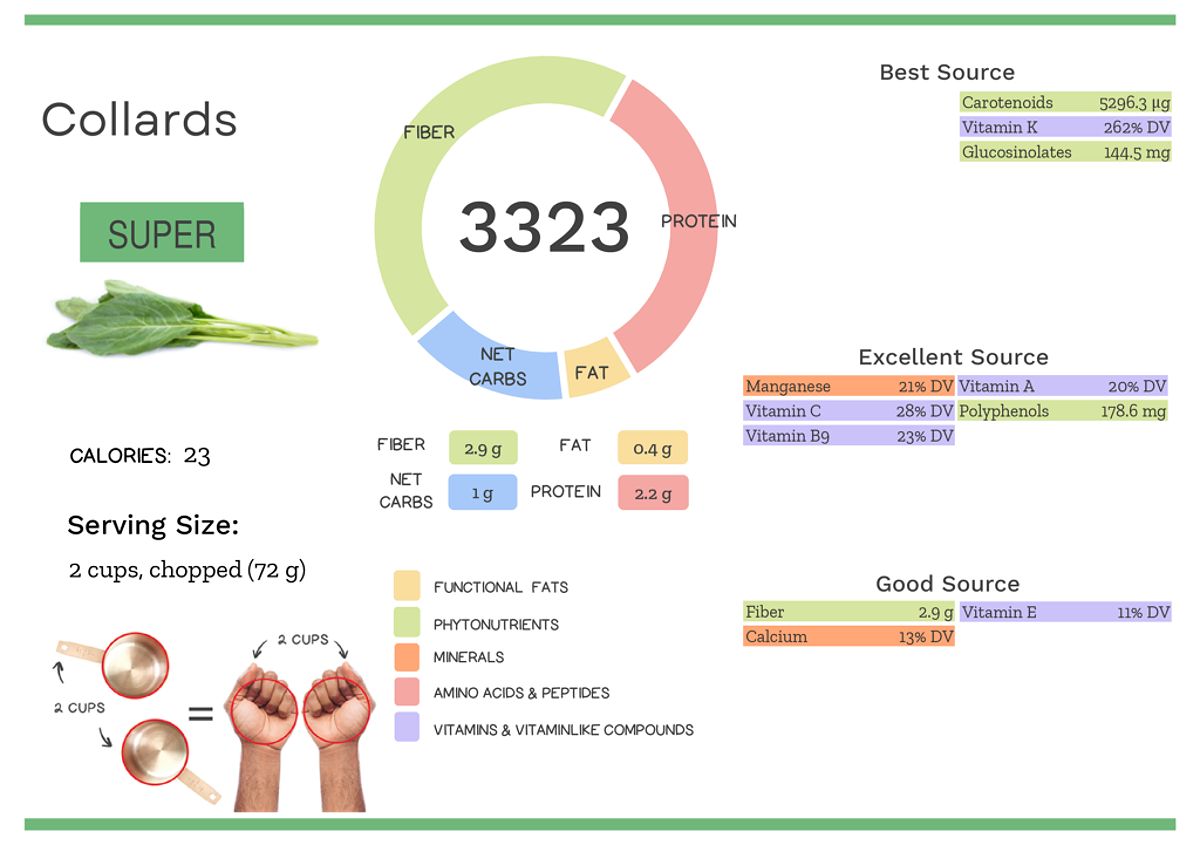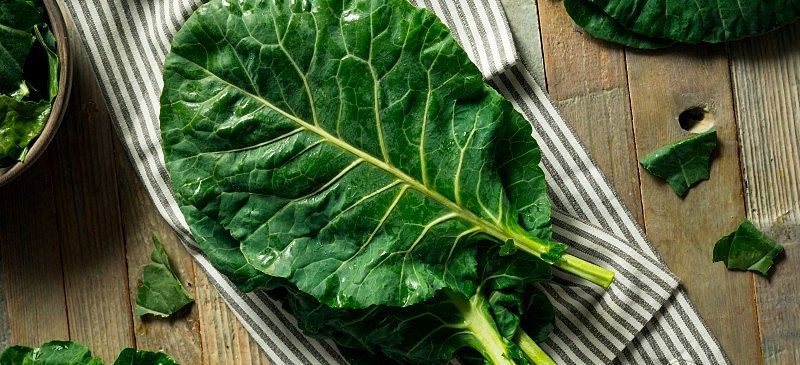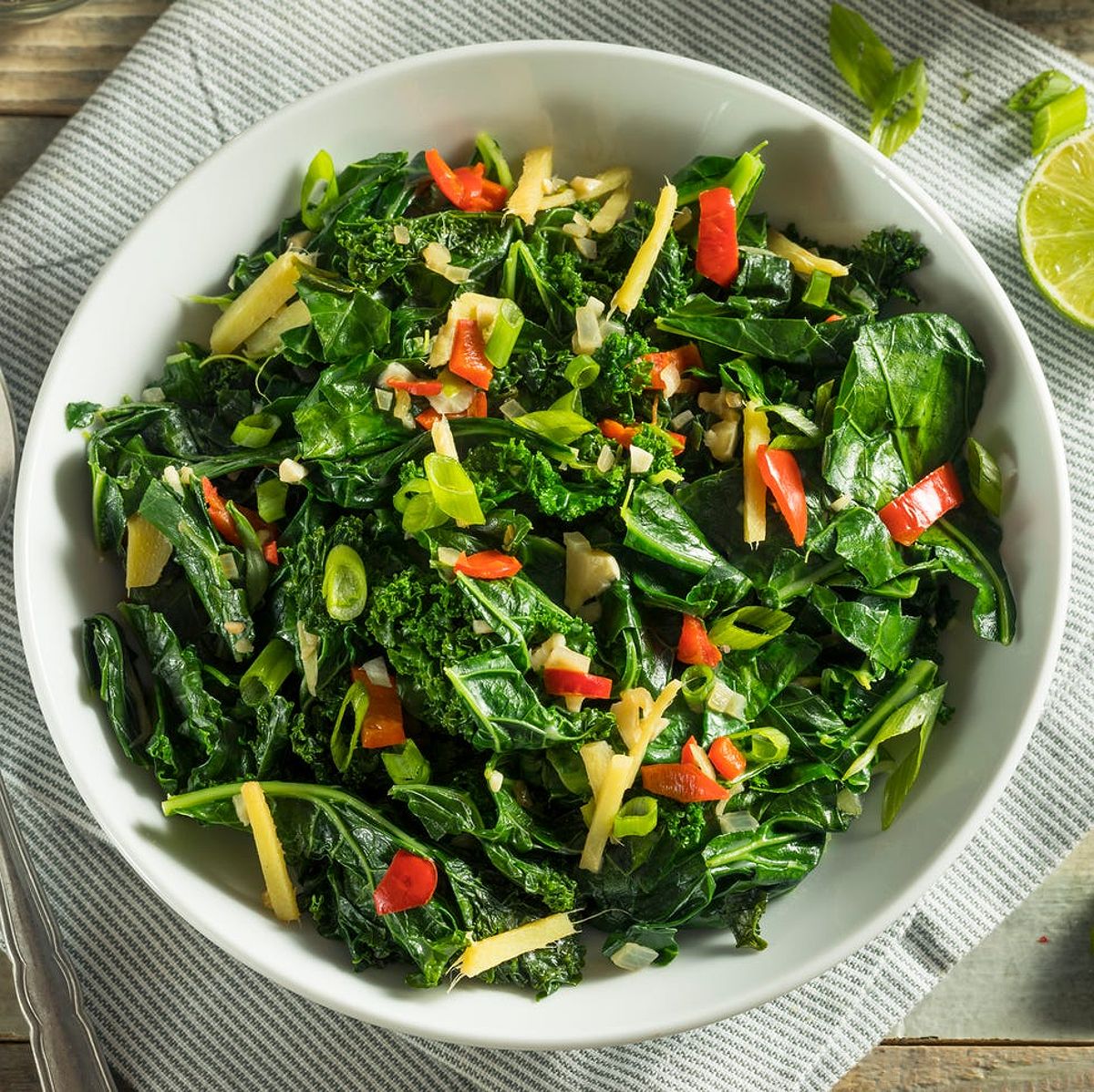Collard greens, a staple in traditional Southern cuisine, have recently emerged as a rising star in the health and wellness world. These nutrient-dense leafy greens are packed with an impressive array of vitamins, minerals, and antioxidants that can offer a multitude of benefits for your overall well-being. If you’ve ever wondered, are collards good for you? or what are collard greens good for, this article will provide you with the answers.
Collard Greens: A Powerhouse of Nutrients
Collard greens belong to the Brassicaceae family, which includes other nutrient-rich vegetables like kale, broccoli, and Brussels sprouts. These leafy greens are not just a side dish; they are a true nutritional powerhouse that can elevate your health in remarkable ways.
Vitamin K: A Standout Nutrient
One of the standout features of collard greens is their exceptionally high vitamin K content. A single serving delivers over 262% of your recommended daily intake of this vital nutrient. Vitamin K plays a crucial role in blood clotting, bone health, and may even contribute to cardiovascular wellness. If you’re taking blood-thinning medications, be sure to discuss your collard greens consumption with your healthcare provider, as vitamin K can interact with these treatments.
Antioxidant-Rich Profile
Collard greens also boast a rich antioxidant profile, featuring compounds like glucosinolates, carotenoids, and polyphenols. These powerful antioxidants work tirelessly to combat oxidative stress and inflammation in the body, both of which are linked to chronic diseases such as cancer, heart disease, and neurodegenerative disorders. Incorporating collard greens into your meals is an easy way to boost your antioxidant intake and support your overall health.

Fiber-Filled Goodness
Another reason to love collard greens is their impressive fiber content. A single serving offers nearly 3 grams of fiber, which is essential for digestive health. Fiber not only promotes regular bowel movements but also aids in cholesterol management and weight control by helping you feel full longer. Adding collard greens to your diet can be a simple yet effective way to improve your overall well-being.
7 Incredible Health Benefits of Collard Greens
Now that we’ve established the nutritional prowess of collard greens, let’s dive into the specific ways they can benefit your health.
Cancer Prevention
The glucosinolates present in collard greens are not just powerful antioxidants; they also play a crucial role in cancer prevention. These sulfur-containing compounds have been shown to inhibit the growth of cancer cells and may even induce apoptosis (programmed cell death) in certain tumors. Regularly consuming collard greens may help lower the risk of various cancers, including bladder, breast, colon, and lung cancer.
Cardiovascular Support
Collard greens are also a boon for your heart health. The combination of fiber, vitamin K, and antioxidants in these leafy greens makes them an excellent choice for cardiovascular well-being. Soluble fiber helps lower cholesterol levels, while vitamin K supports healthy blood clotting and may prevent plaque buildup in arteries. Additionally, the antioxidants in collard greens help reduce inflammation, a significant contributor to heart disease.
Improved Digestion
Collard greens can work wonders for your digestive system, thanks to their high fiber content. Fiber promotes regular bowel movements and supports a healthy gut microbiome, which can alleviate issues like constipation. Incorporating collard greens into your meals may also help prevent conditions such as irritable bowel syndrome (IBS) and inflammatory bowel disease (IBD).
Stronger Bones
The vitamin K in collard greens is also essential for maintaining strong bones. Vitamin K regulates the mineralization of bones and enhances the effects of other bone-building nutrients, such as calcium and vitamin D. Regularly consuming collard greens can support skeletal health and potentially reduce the risk of osteoporosis.

Enhanced Vision
Collard greens can also benefit your eyes. The carotenoids found in these greens, such as lutein and zeaxanthin, have protective effects on eye health. These antioxidants help shield the macula from damage caused by blue light and may lower the risk of age-related macular degeneration, a leading cause of vision loss in older adults.
Weight Management Support
If you’re on a weight management journey, collard greens can be a valuable ally. Their low-calorie yet high-fiber content can keep you feeling full without adding excessive calories to your meals. The fiber in collard greens promotes satiety, reducing the likelihood of overeating and aligning with your weight loss goals.
Immune System Boost
Lastly, collard greens can give your immune system a much-needed boost. The combination of antioxidants and vitamin C in these leafy greens works together to enhance immune function. Vitamin C is vital for the proper functioning of immune cells, while the antioxidants neutralize harmful free radicals and reduce inflammation, which can impair immune responses. Including collard greens in your diet may help support your body’s natural defenses against infections.
Incorporating Collard Greens into Your Diet
Cooking Collard Greens
Incorporating collard greens into your meals is easier than you might think! Start by removing the tough stems and chopping the leaves into bite-sized pieces. Cooking methods such as steaming or sautéing collard greens in a small amount of healthy oil, like olive or avocado oil, can help preserve their nutrients while enhancing their flavor.

Delicious Collard Greens Recipes
Here are some tasty ways to enjoy collard greens:
- Collard Green Salad: Toss chopped collard greens with your favorite veggies, a light vinaigrette, and some toasted nuts for a crunchy and nutritious salad.
- Collard Green Soup: Sauté onions and garlic, then add chopped collard greens, broth, and your choice of spices for a hearty and healthy soup.
- Collard Green Wraps: Use collard leaves as wraps filled with hummus, grilled chicken, or fresh vegetables for a fiber-rich lunch option.
Creative Uses for Collard Greens
Don’t be afraid to get creative with collard greens! You can add chopped greens to smoothies or blend them into fresh juices for an extra boost of nutrients. You can also use collard greens as a substitute for lettuce in wraps and sandwiches.
Selecting and Storing Collard Greens
Choosing the Best Collard Greens
When shopping for collard greens, look for vibrant green leaves that are free from wilting or discoloration. Avoid any greens with tough, woody stems, as these can be challenging to prepare.
Keeping Collard Greens Fresh
To keep your collard greens fresh, wrap them in a damp paper towel or store them in a resealable bag in the refrigerator. This method will help maintain their freshness for up to five days.
FAQ
Q1: Are collard greens safe to eat raw?
A1: While you can eat collard greens raw, they tend to be tougher and more fibrous than when cooked. For the best texture and flavor, cooking is recommended.
Q2: How much collard greens should I eat per day?
A2: Aim for 1-2 servings of collard greens daily as part of a balanced diet to reap their health benefits.
Q3: Are there any side effects of eating collard greens?
A3: Collard greens are generally safe, but consuming large amounts may lead to mild gastrointestinal discomfort, such as bloating or gas. Start slowly and see how your body responds.
Q4: Can I eat collard greens if I’m on blood thinners?
A4: It’s essential to discuss your collard greens intake with your doctor if you’re on blood thinners, as vitamin K can interact with these medications.
Are Collards Good for You? The Answer is Yes!
In summary, collard greens are a nutritional powerhouse that can offer numerous health benefits. From their impressive antioxidant profile to their ability to support cardiovascular health, digestive function, and immune system, these leafy greens are a must-have in any healthy diet.
If you’ve ever wondered, “are collards good for you?” the answer is a resounding yes. Collard greens can not only enhance your nutrient intake but also contribute to your overall well-being in remarkable ways. Embrace the versatility of these greens and explore the delicious recipes and creative ways to incorporate them into your meals.
Start your journey towards better health by adding collard greens to your diet today. Discover how this humble vegetable can elevate your meals and support your well-being in incredible ways.
